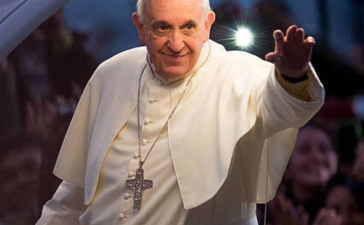- Retailer’s share price tumbled to a three-year low amid profit warning
- It reported weaker demand for its expensive trench coats, bags and scarves

Extravagant: Singer Shakira for Burberry
British designer Burberry issued a profit warning as the super-rich tightened their purse strings over Christmas
The retailer’s share price tumbled to a three-year low after it reported weaker demand for its expensive trench coats, bags and scarves and wiped £100m off its profit outlook.
Luxury brands have struggled as wealthy customers begin to feel the impact of higher inflation.
It marks a reversal in fortunes for Burberry which two years ago was riding high as the super-rich emerged from lockdowns splashing on clothes, handbags, shoes and champagne.
At the time one analyst likened the spending to the roaring 1920s, an age of decadence and prosperity.
But Russ Mould, investment director at AJ Bell, said: ‘So much for the roaring twenties.
‘The idea that wealthier individuals would completely brush off inflation and the cost-of-living crisis has been thrown in the bin.
‘No sector is entirely immune from such pressures and over the past six months or so we’ve seen cracks appearing in luxury goods as demand wanes.’
It had been hoped that Christmas would offer respite for Burberry but there was no such luck. All eyes now turn to Bernard Arnault’s LVMH which reports in two weeks time.
Burberry shares at one point fell as much as 15 per cent, the steepest intraday decline in more than a decade, after it said profit for the year ending March 30 would be between £410million and £460million. Shares fell 5.5 per cent, or 75p, to 1,286p.
In November Burberry, which has 225 stores and 139 concessions, forecast full-year profit at the lower end of a £552million to £668million range.
The heritage label’s stock has fallen by around 40 per cent in the past six months as a post-Covid boom in high-end spending by Chinese consumers fizzled out.
Chief executive Jonathan Akeroyd said trading had been ‘challenging against the backdrop of slowing luxury demand’.

Woes: Burberry’s share price has fallen by around 40% in the past six months
Sales fell 7 per cent from £756million to £706million in the 13 weeks ending December 30, compared with the same period in the previous year.
‘We experienced a further deceleration in our key December trading period and we now expect our full year results to be below our previous guidance,’ Akeroyd, who took the top job in 2022, said.
‘We remain confident in our strategy to realise Burberry’s potential.’
But Mould warned: ‘Unlike your average fashion retailer, it is simply not the Burberry way to slash prices and hope bargains lure in shoppers.
‘The luxury goods scene is about trying to make consumers want to have something exquisite and premium priced to give the illusion that it is only available to the elite.’
Luxury rivals are also struggling. Gucci owner Kering reported a bigger-than-expected drop in sales in the third quarter, with revenue falling 9 per cent.
Richemont, the owner of Cartier jewellery, missed first-half profit forecasts in November. Sales growth eased to 5 per cent in July to September compared with 19 per cent rise in the April to June period.
Analysts have forecast that sales at LVMH will fall this year as shoppers stop spending on its designer bags and clothes. The company had reported slowing sales in the third quarter as the post-pandemic boom ended.
Chief financial officer Jean-Jacques Guiony said in October the ‘roaring years’ were over.
Sophie Lund-Yates, analyst at Hargreaves Lansdown said the ‘cracks appearing in luxury demand are very telling.
‘So-called aspirational shoppers are one of the demographics pulling back, and Burberry is more exposed to this type of customer.’










